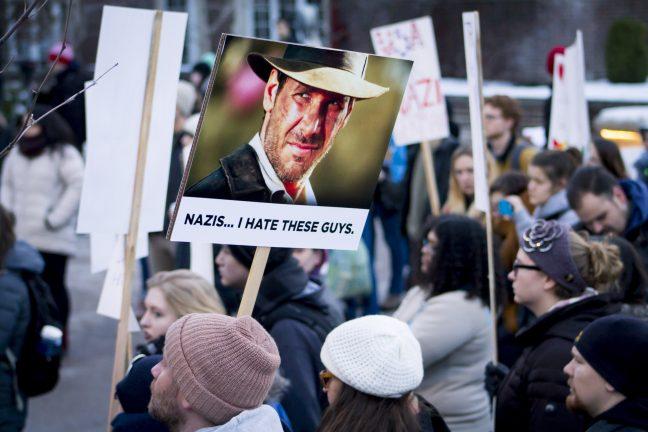Between the fall of 2016 and the fall of 2017, the amount of white supremacist propaganda distributed on college campuses across the country rose by 258 percent.
Forty-four states and the District of Columbia have suffered from the increase in white supremacist propaganda, with Texas, California and Pennsylvania hit the hardest. According to the Anti-Defamation League, white supremacists’ targeting of college campuses is not new, but gained traction in the fall of 2016, perhaps due to the troubling rhetoric of then President-elect Donald Trump. Of the 346 reported incidents occurring since Sept. 1, 2016, 290 took place in 2017, with 15 incidents already reported in 2018.
The active white supremacist groups deploy different strategies to try to recruit college students. Identity Evropa, the most active of the groups, tends to stray away from typical white supremacist messages or images, instead choosing more innocuous slogans such as “Our generation. Our future. Our last chance. Identity Evropa also capitalizes on historical images of powerful white, predominately male figures, to showcase white power over other races.
Other groups stick closer to the traditional propaganda, employing swastikas and other Nazi imagery or using slogans such as “It’s okay to be white.”
Infamous white supremacist and alt-right leader Richard Spencer, when asked why college campuses were being targeted, responded, “this is a young person’s movement.” Eli Mosely, leader of Identity Evropa and one of the people responsible for the “Unite the Right” rally in Charlottesville this past summer, believes not only have universities served as a political platform for decades but that they are fundamentally some of the most anti-white institutions in the country. Academia in America, according to Mosely, teaches white students to hate themselves and feel guilty about the color of their skin.
UW students protest ‘alt-right,’ call on chancellor to condemn hate speech
It is not surprising that white supremacist groups are attempting to tap into the voting power and the moldable minds of college students. In some of our most formative years, where students are growing into adults, many on their own for the first time in their lives, political ideologies are subject to change. It is also not surprising that white supremacists are choosing now to further their twisted agendas, considering politicians nationwide are becoming more apt to spew racist rhetoric and support racist policies.
Moreover, it is undoubtedly true that college campuses have long been places for political ideas to be formed, disseminated and challenged among students and faculty. University of Wisconsin students protested the Vietnam War and rallied for civil rights for African Americans in the 1960s. More recently, students at UW have protested President Donald Trump’s election, marched for women’s rights and for the rights of immigrants.
In Photos: Hundreds gather to protest 45th president’s inauguration
But organic rallies led by students that students actively wish to participate in are a far cry from what white supremacist groups are attempting to achieve on campuses. These groups are trying to infiltrate a university, spreading hateful rhetoric and messages in an environment where every student, regardless of their gender identity or color of their skin, deserves to feel safe and welcome, to cater to a minuscule minority of students who identify with their harmful message. The majority of students are not asking for these groups to come to their school and preach about how white people are better than minorities. The majority of students don’t believe that this is true.
Panel discusses how history of racism, white supremacy played role in Charlottesville
The First Amendment grants white supremacists the right to spread their propaganda, to speak on college campuses, to hold rallies. But the same First Amendment also gives students the right to vocalize their disagreement with ideas that they deem harmful to their university’s community.
It is our responsibility to exercise our First Amendment rights to prevent white supremacist groups from gaining traction and gaining a platform to continually marginalize minorities on campuses.
Aly Niehans ([email protected]) is a sophomore majoring in political science and intending to major in journalism.














